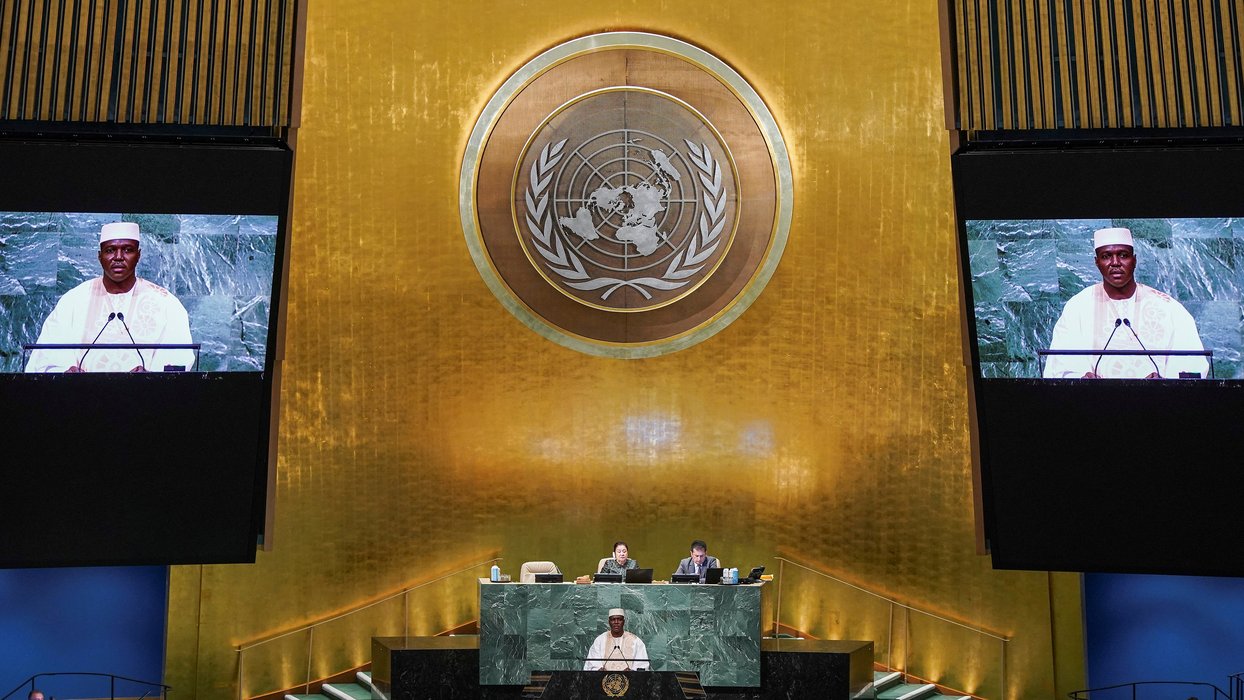Protect Freedom of Expression in Mali https://t.co/o5n6w4bwPU
— Human Rights Watch (@hrw) November 10, 2022
Expression
Television channel suspended for opinion piece on freedom of expression
On 3rd November 2022, Mali's national media regulator, the Haute Autorité de la Communication (HAC; High Authority of Communication), suspended television channel Joliba TV News, and its Facebook page, for a period of two months. The HAC cited "serious and repeated breaches and violations of the substantive provisions of the code of ethics for journalists" as grounds to suspend the media outlet.
The decision to suspend comes three weeks after Joliba TV News received a formal notice accusing the TV channel of "defamatory statements" towards authorities and "unfounded accusations" in relation to a broadcast of the TV programme 'Editorial' on 30th September 2022, in which journalist Mohamed Alidou Attaher said that freedom of expression is in danger in Mali and called on the HAC to break its silence on the violations of freedom of expression in the country, while also criticising interim President Abdoulaye Maïga for his speech at the UN General Assembly on 24th September 2022.
The decision was condemned by media organisations Association des Professionnels de la Presse en Ligne au Mali (APPEL-Mali) and Union des Journalistes Reporters du Mali (UJRM), who called on the HAC to reconsider the suspension.
Reporters sans frontières condamne les menaces contre le journaliste malien Malick Konaté https://t.co/HsNoMespcc pic.twitter.com/k29thR2BoP
— RFI (@RFI) November 10, 2022
Journalist threatened
In another incident, journalist Malick Konaté was subjected to numerous threats, including death threats, following his participation in a French TV documentary on the presence of mercenaries connected to the Russian Wagner Group, broadcast on 31st October 2022 on French TV news channel BFMTV. Although Konaté's role in the documentary was limited to filming some of the video footage, he was called “a prey to be gunned down” , “Mali’s public enemy number 1” and a “traitor” to be “eliminated for the good of the people” in social media posts by individuals. Additionally, the Collective for the Defence of the Military (CDM), a group that defends the transitional authorities and the Malian armed forces, published a statement on its Facebook page on 3rd November 2022, saying that Konaté's role in the documentary is an “act of high treason” and “irresponsible on the part of a so-called Malian in France’s pay”. On 4th November 2022, Konaté received a call from the head of the police's Judicial Investigations saying he was "needed", while military officers in plain clothes visited his home in Bamako twice. Since the military coup of August 2020, Konaté has been the target of threats and intimidation on several occasions, and been accused of opposing the military transitional authorities. On 4th June 2022, the windows of his vehicle were broken by two men on a motorcycle.
Sadibou Marong of Reporters without Borders (RSF) commented:
“This journalist’s plight, which is extremely worrying, is indicative of the free fall that press freedom is experiencing in Mali. Malick Konaté now fears for his life simply for doing his job as a journalist by participating in a documentary. The authorities must react and must protect journalism and the freedom to inform in a country where media professionals are barely able to work freely any more for fear of reprisals.”
Association
Activities of CSOs financed or supported by France suspended, new regulations tighten control of CSOs
On 21st November 2022, military transitional authorities banned, with immediate effect, the activities of non-profit organisations, including those operating in the humanitarian field, who are financially or technically supported by France. The ban does not apply only to French CSOs, but all CSOs receiving assistance from France. In December 2022, the transitional authorities announced measures to increase the control of CSOs: the Minister of Territorial Administration will now validate the sources of finances of NGOs, monthly for foreign organisations and annually for Malian CSOs. Besides the new reporting obligations that this measure entails, a new commission for the “coordination, evaluation, monitoring and control of associations and NGOs” was reportedly created.
These measures come in reaction to France's decision, at the end of October 2022, to suspend its official development aid to Mali, a decision which did not affect humanitarian aid or its assistance to civil society organisations working in Mali. The French Minister of Foreign Affairs had invoked the use of the Russian paramilitary group Wagner by Malian authorities. In a press release, Colonel Maïga denounced France's "fanciful allegations" and called the French decision a "subterfuge intended to deceive and manipulate national and international public opinion for the purpose of destabilising and isolating Mali". The relationship between Mali and France has been deteriorating for a while.
Swiss humanitarian CSO banned
In a ministerial decree, dated 15th December 2022 and issued by the Minister of Territorial Administration, the activities of the Swiss humanitarian organisation Geneva Call/ Appel de Genève, an organisation specialised in the protection of civilians by non-state armed groups, were banned in Mali, due to its alleged "illegal activities". While the decree does not mention the activities considered illegal by the military transitional authorities, some news sources allege it may be related to the invitation by the CSO of former rebels of the Coordination des mouvements de l'Azawad (CMA) to Geneva for the signature of an "act of commitment" on the respect of humanitarian law and more specifically the protection of humanitarian staff working in the area of health.
Communiqué #042 du Gouvernement de la Transition du Mali suite à l’annonce par la France de la suspension de son “aide au développement” pic.twitter.com/0YedG5Q2Mo
— Ministère des Affaires étrangères du Mali (@MaliMaeci) November 21, 2022
